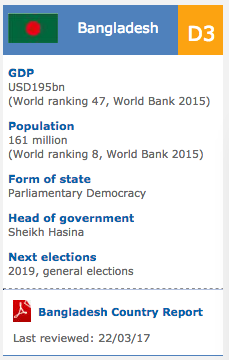Ethiopia: Urban Development & Housing Consensus and attitude change create a springboard for development
2015/12/19

Ato Mekuria Haile, Minister of Urban Development and Housing, provides an exclusive insight into the country’s social, economic and human resources development, and discusses why investors should take a closer look at Ethiopia.
Christine Lagarde said last year at the IMF’s Africa Rising conference in Maputo that Africa has three challenges: build infrastructure, build institutions, and build people. Please discuss Ethiopia’s efforts in this regard and how your Ministry has a key role in it.
I think this is a very critical point for any developing country. In the case of Ethiopia, at the same time as we were planning the strategy we have to make sure that our plan gets implemented. The critical point of this schedule was capacity building and the implementation of capacity building plan. So, at the same time as we talk about capacity building we are talking about our human resources, about the systems development and the functional structure in place. This is because it is the sum of these three issues that gives you an institution implementation capacity definition.
So, in relation to this issue, we started our move by having a national consensus on the fact that we are a poor country behind a lot of nations, even if we do have good weather, which is a conducive working environment the whole year and very fertile land, a lot of rivers and water with its abundance and additional than 90 million people. So, having all these potential resources for development we become behind other nations in terms of economic development. We tried our best to have a consensus on these issues, and that consensus and attitude change, having a common considerate on this issue, have given us a springboard to start our development initiative. That is because of this consensus that we created and the common considerate on the issue, we have been having double-digit economy increase in the completed 12 years. In this case, the country decided the livelihood of rural areas and agriculture development as a must, because 80% of our labor is found in the rural areas and only 20% in urban areas.
This is Ethiopia’s context. We have to convince the farmers of maximizing the benefits they can earn on plots of land, of using their labor to work on that land, practicing water conservation and the use of selected seeds and fertilizer. Convincing them to use their labor to increase productivity has been one of the majority underlined points, which we are continuously working with. That is human resource development. In urban areas, where there are small and micro enterprises, we tried to convince and support them to understand that they do have the capacity and the resources on their own to use as start-up capital for enterprise development. As the land belongs to the people and whenever they are ready to produce, the government makes the land and working premises available; we as well offer micro finance and machinery leasing and all other related supports in a one stop-shop service. So, convincing the people to unleash their power and to unleash their entrepreneurial capacity has been an additional point we focused on. And that is, again, human resource/human capital/development.
At the same time as it comes to the government’s side, we had a lot of civil service reform initiatives. We have had to change our people’s attitude; the civil servants attitudes have had to change. Initial, discussion, again find a national consensus, and again have clarity on the support and the strategies, and a lot of training for the civil servants, which was an additional point which we embarked upon. And that is as well human resource development.
In terms of universities, before there were only two or three universities, instantly we have around 33 universities. In the completed 10 years additional than 30 universities have been established and with GTP II we are to build an additional 10 universities. Human resource development has been given a lot of emphasis, so that we can have skilled manpower and professionals that should help to grow the economy continuously and sustainably. So human resources development, systems development and technology transfer are very significant points for us. As I indicated, enabling farmers to use appropriate fertilizer, selected seeds and tools which give them the luck of increasing productivity.
The other point you raised is infrastructure development. For the private sector, for farmers and for micro and small enterprises, building the necessary infrastructure and making it additional accessible have been taken as a backbone for economic development. Road construction, telecommunication expansion, power expansion, railway expansion and water supply, all these issues have been considered backbones for the country’s economic development. Parallel to economic increase, investment in infrastructure took the highest slice of our budget allocation. It is with this considerate that government is committed to infrastructure development.
The other point you raised is the issue of urbanization in Ethiopia and the housing development, and the function of the urban setup for the in general national economic development. In this case, urbanization is at an early stage, compared to sub-Saharan nations or compared to other developing nations. You can say that Ethiopia is in a far early stage of urbanization, but the rate of increase of urbanization is fast with the rate of 5.4% per year and we expect by 2025, 30% of our people are going to settle in urban areas.
At the same time as we are moving into industrialization, and the expansion of telecommunications, the expansion of education, the expansion of civil service, the expansion of tourism, this is going to be an increase in the role of urbanization in the coming years. As you’ve said, at the same time as we’re talking about industrialization, the housing issue is going to be a critical issue, because at the same time as you are talking about labor, labor productivity, availability and supply are comparative advantages. To be competitive, we should have high productivity and efficiency. If it is going to have high productivity and high efficiency in the production centers, labor should have additional conducive living environment and housing conditions. This means that the housing issue is going to be a very critical point, as it is a basic need for human beings. The housing issue is becoming a critical point to intervene in, that’s why we’re intervening in Addis Ababa in massive housing supply and the same mega project is going to continue in the coming years.
In our GTP II we plan to supply around 750,000 houses all over the country, and a high % of this will be in Addis Ababa. We are planning to have foreign direct investors in real estate development and to work in partnership, in a joint venture way, to transfer technology and to increase our supply of housing. Not only housing as a shelter, as I said, it is essential for increasing productivity on other issues are as well very significant, like transportation. For example, we are working on infrastructure development in Addis Ababa, where we are supplying railway services and road construction, a lot of road construction, express roads, to connect rural to urban areas and urban to urban setups. There is as well the project of industrial park development in urban areas. The private sector engagement is very clear and vivid in our GTP II. Without the partnership of the private sector, we cannot reach sustainable double-digit economic increase.
At the same time as we talk about transformation, it is the labor shift from agriculture to industry and to bring our citizens from the rural centers to the urban centers. It is as well mean the share of agriculture to decline and the share of industries to increase from the gross national domestic product. This is a key performance indicator of our economic success and transformation succcess, without forgetting that there is a shift within the industry too. Urbanization in the coming years is very imminent and we’re striving to manage this urbanization, to be well planned and resilient and to create viable cities in our country. The role of my Ministry is to be proactive and, based on the plan we have laid out, to lead the way and orchestrate the urban agendas, the resilience issue, the infrastructure issue, the housing issue, the industrialization issue, and for all these areas to develop without one being a bottleneck for the other. We need to make sure this process flows smoothly and sustainably.
What could you tell the international community about the new economic landscape in Ethiopia?
The message I want to convey is an opportunity. Ethiopia, as you said and properly defined, is the seat of the African Union. Foreign direct investors are demonstrating their competitiveness in Addis Ababa, or in Ethiopia in general; it is a demonstration for them to catch other African nations and to show their competitiveness and their effort to make a difference in developing nations. Investing in Ethiopia doesn’t mean they would be investing in one country; they would be investing in Africa as a whole. That is one message I want to convey.
The second point I want to convey is that Ethiopia has spent years making sure the working environment is conducive to investment , with the proper conditions and abundant young and productive labor. Our people are welcoming people and inclusive people. That is an opportunity for foreign direct investors approaching here, and invest, and maximize and exploit this opportunity for their competitiveness, particularly those in labor-intensive industries and manufacturing.
The third point I want to convey is that investors who are joining on the early stage of economic development have a possibility of having a stronghold in that country. So, foreign direct investors who are coming today would have a better opportunity of having a better positioning, a better considerate, and having a stronghold to compete with other latecomers. The people size, a large market, a demonstration for African nations, having our commitment to expand all infrastructures, to make doing business easy and to create a conducive investment climate, and for sure having the government’s commitment, they will be competitive in other nations if they want to export and if they are going to produce for the domestic market too.
As the Minister for Urban Development and Housing, and as a member of the leadership team of this country that is working to make a large difference in the living standards of our citizens, I want to express our readiness to say: welcome.
- Related Articles

Top 10 Most Attractive Investment Destinations In Africa
2017/08/20 Africa’s feverish increase has decelerated in recent years and a lot of nations have buckled under the pressure of falling resource prices, security disruptions, fiscal imprudence and adverse weather conditions.
Africa's Relationship With China Is Ancient History
2017/07/02 In 2002 South Africa's Parliament unveiled a digital reproduction of a map - of China, the Middle East and Africa - that some speculated could be the initial map of the African continent. The Da Ming Hun Yi Tu - the Comprehensive Map of the Great Ming Empire - was drawn up around 1389 during the Ming Dynasty, according to historian Hyunhee Park.
Africa: Making Things Happen at the Bank - 'Not a Talk Shop' - Akin Adesina
2017/07/02 Dr. Akinwumi Adesina is focusing on five areas to achieve the African and world goals for a prosperous continent since becoming president of the African Development Bank - Africa's major public financial institution in September 2015. He was a keynote speaker at this month's Corporate Council on Africa's U.S.- Africa Business Summit in Washington D.C. and moderated a lively panel with five African government ministers. He as well received the Gene White Lifetime Succcess Award from the World Child Nutrition Foundation. This week, he was named the 2017 recipient of the World Food Prize, a prestigious honor that includes a $250,000 award. In an interview in Washington, DC, Adesina discussed the Development Bank's ambitious schedule and his vision for attracting the increase capital Africa needs. Posting questions for AllAfrica was Noluthando Crockett-Ntonga.
Climate change laws around the world
2017/05/14 There has been a 20-fold increase in the number of global climate change laws since 1997, according to the most comprehensive database of relevant policy and legislation. The database, produced by the Grantham Research Institute on Climate Change and the Environment and the Sabin Center on Climate Change Law, includes more than 1,200 relevant policies across 164 countries, which account for 95% of global greenhouse gas emissions.
Africa’s 20 most attractive countries for investors
2016/05/16 Despite its economy slowing down, South Africa remains Africa’s most attractive country for investors, according to the 2016 Ernst & Young Africa Attractiveness Index. The statement evaluates evolution made in governance, diversification, infrastructures, business enablement, human development inclunding resilience to current macroeconomic challenges. Morocco is ranked second on the index, followed by Egypt, Kenya, Mauritius, Ghana Botswana, Tunisia and Rwanda. Cote d’Ivoire comes tenth. Africa’s top economy, Nigeria comes 15th, mainly because of its poor performances in terms of governance and human improvment(See full ranking below).
- Ethiopia News
-
- AFGHANISTAN: UNWTO: International tourism – strongest half-year results since 2010
- BOTSWANA: Why governments need to support the financial sector to meet the unserved needs of smallholder farmers
- BOTSWANA: International Arrivals To Africa Reach More Than 18 Million In 2017
- ETHIOPIA: Ethiopia: Nation Toiling to Harvest a Bumper Crop
- ETHIOPIA: Ethiopia: Land Certification - Will It Bring Tenure Security?
- BOTSWANA: Africa: USA-Africa - No Policy? Bad Policy? or Both?
- Trending Articles
-
- SOUTH AFRICA: Nigeria and South Africa emerge from recession
- BAHRAIN: Bahrain issues new rules to encourage fintech growth
- ANGOLA: Angola: Elections / 2017 - Provisional Data Point Out Qualified Majority for MPLA
- WORLD: How fair is our food? Big companies take reins on sourcing schemes
- CHINA: Russian firm seals energy exploration deal to drill South African shelf
- NIGERIA: Nigeria has been one of the hardest-hit economies due to its over-dependence on oil










